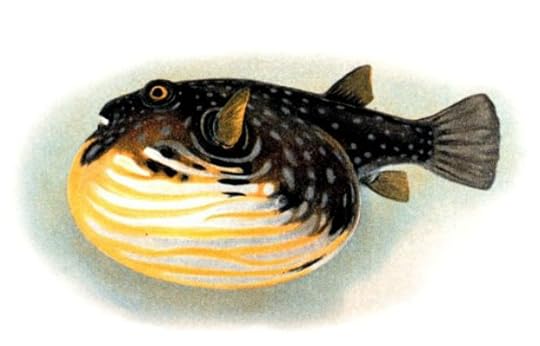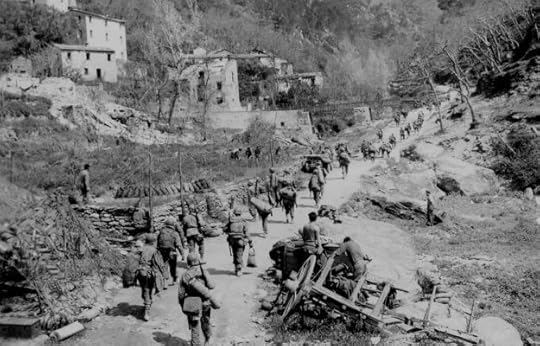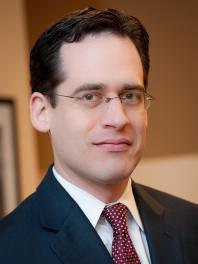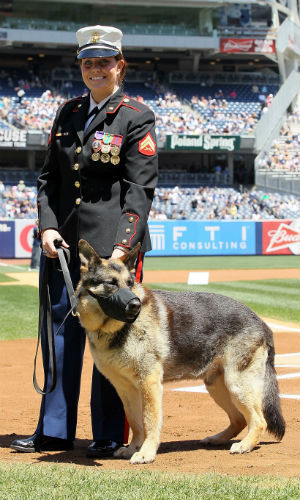Thomas E. Ricks's Blog, page 182
May 23, 2012
A PME survivor on how to fix the war college system: Take it back to the future
By Gary Schaub Jr.
Best Defense department of VME (veterans of military
education)
What sort of senior military officers are the U.S. military
creating with its system of professional
military education (PME)?
If one were to examine the curricula of the war colleges,
one would likely discover three types of military professionals that they are attempting
to develop: service professionals, joint professionals, and national security professionals. Unfortunately, the difference between these
three types of professionals is vast and expecting an officer to master all
three in 10 months is a tall order. The
faculties and services ought to recognize this and use it as an opportunity to
revamp the war college system, re-instituting the differentiated missions that
Admirals Leahy and King and Generals Marshall and Arnold envisioned in the
aftermath of the Second World War.
A military professional is an officer who is an expert in
the management of violence. This is not
the same as being an expert in the application of violence. Although many war college students have been
"operators" and "trigger-pullers" for substantial portions of their careers, and
have achieved their current rank by demonstrating their mastery of tactical
engagement and command of those immediately engaged in tactical applications of
force, this is not what their service expects of them once they reach the rank
of lieutenant colonel or colonel.
What is expected is that these officers will become service professionals: that they will
possess a broad understanding of their service's enduring mission and be able
to utilize their leadership skills to forcefully advocate their service's
positions in the joint, interagency, and public arena. These expectations are the legacy of the
services' historical missions and level of ambition. They can be seen in the emphasis that each
service's war college is expected to bring to its service's mission and
capabilities within its curriculum and other activities, such as producing
opinion pieces to be circulated by the command's public affairs bureaus.
It is also expected that these officers will become joint professionals. Such officers are familiar with the missions
of the other services, their unique capabilities and ability to contribute to
the fight, and the processes by which these are de-conflicted and integrated to
increase military efficiency and battlefield effectiveness. This type of professionalism has become
increasingly important in the post-Goldwater-Nichols era, as senior civilian
and military leaders have struggled to overcome service parochialism, and the
services have made substantial changes to ensure that their officers "grow up
joint." Each war college is certified by
the Joint Staff to award JPME (Joint PME) Phase II credit to its officers upon
completion of the course and many are on the way to phasing out JPME Phase I
topics as these are integrated into their respective command and staff
courses. This evolution has not been
natural and the faculties of the war colleges are to be commended for their
degree of devotion to enhancing this aspect of the SDE experience.
Finally, the war colleges expect to acquaint their officers
with the broader aspects of strategy at the national level of decision
making. Such national security professionalism entails knowledge of each of the
"instruments of power" (diplomatic, information, military, and economic -- "the
DIME"), what these bring to the fight, the agencies that wield these other
means, and the processes by which they are integrated to achieve national
objectives. These colonels are expected
to be knowledgeable about the national security strategy of the United States,
its global and regional interests, the other actors whose behavior will affect
the exercise of American power, and the larger global context within which all
of this activity occurs. They are now
expected to also acquire a more than superficial acquaintance with the culture
of a particular region as well as language skills.
The attempt to cover all three aspects of military
professionalism produces a curriculum and an experience that is, at times, a
mile wide and an inch deep. Most core
courses are designed as surveys, highlighting a topic of the day with little
attempt to integrate these into an overarching framework that would show how
the various pieces fit together. Such
integration is left to the individual student. The inability of the hard working faculties of these institutions to
reconcile these levels of military professionalism in the curriculum -- and
amongst themselves -- often makes the whole of the PME experience less than the
sum of its parts.
Even more important than these needlessly
discrete buckets of knowledge, war colleges expect to inculcate the ability to
recognize and frame problems within a complex and ambiguous environment, to
think creatively about solutions to these problems, and to critically evaluate
the solutions proffered -- as well as arguments put forth on other topics.
In short, war colleges are charged to make their students
into nimble-minded, creative, and knowledgeable experts in service, joint, and
national security affairs. Within 10
months. A long-time veteran of the PME
world has called this a game of inches and asking these officers -- fine,
intelligent, hard working, dedicated patriots all -- to master 3 levels of
perspective during their year out of the fight is often a bridge too far.
The result is that the vast majority of officers come to the
war college as proto-service professionals and graduate as joint
professionals. As they complete their
careers in uniform, it is likely that this is sufficient. Only a minority can be truly said to have
mastered national security professionalism and it is here that the American
profession of arms misses an opportunity to produce a deep bench of general
officers that can effectively bridge the gap between virtuosity in operations
and the achievement of policy objectives. The dialogue over American strategic thought of the past decade suggests
that this is the area where our general officer corps has often fallen short.
A war college education cannot be all things to all students. Choices must be made. Yet virtue could be made of this necessity if
the services returned to the idea of functional differentiation that had
characterized the war colleges in past eras, where national colleges focused on joint
and national security professionalism, and the service war colleges emphasized
service and joint professionalism. This
could enhance the war college experience for all concerned and produce better colonels (and generals) than at present.
Although vociferously denied, it is well-known that there is
a pecking order amongst the war colleges that often has more to do with
perception and interservice rivalries rather than rigor or quality of
education. Yet perception affects
reality in the promotion system and under such a scheme, the services'
leadership could acknowledge, indeed encourage and utilize, the informal
sorting of careers that occurs in war college selection today.
It is not rocket science to determine which O-5s and O-6s
are of the type likely to be promoted to be general officers by the time they
reach this stage of their career.
Indeed, most officers are well-aware of their potential for future
promotions after they graduate from the war college. The services could more explicitly use this
knowledge to better populate billets in the senior levels of the officer corps
with officers who are expected to be service, joint, or national security
professionals. Officers expected to
remain in senior service billets or service billets in a joint setting, such as
a combatant command, could be directed to their service's war college. Officers expected to take joint jobs could be
assigned to a sister service's war college.
Finally, officers whose service records indicate a
better-than-the-average chance of being promoted into the general officer corps
could be assigned to National War College. This would return National to its position as the capstone of the PME
system and encourage the JCS leadership to ensure that it is appropriately
manned and resourced. (It would also
require additional safeguards for the civilian faculty to ensure that they
could enforce rigor without fear of offending future general officers, as Howard
Wiarda suggests in his book, Military
Brass vs. Civilian Academics at the National War College: A Clash of Cultures.)
Such a system might have many salutary effects. It could make selection to war college more
competitive, thereby opening the way for more discriminating entrance
criteria. It could facilitate greater
focus within the seminar environment as well as within the curriculum.
Finally, it could result in a cohort of colonels and general
officer corps that possess deeper expertise in the areas that they will address
in the remainder of their careers, thereby enhancing the effectiveness and
proficiency of our military leadership. It could also assist the Chairman of the Joint Chiefs of Staff, the J-7
of the Joint Staff, and the service's education (and training) commands in
their efforts to tailor curriculum requirements and direct resources most
effectively. All of this would enhance
the profession of arms in the United States and perhaps serve as an example to
our allies as they reflect upon their PME systems.
In an environment where the services will have to do more
with less, tailoring war college education and officer career paths to the
prerequisites for senior leadership at the service, joint, and national security
levels has much to commend it.
Dr. Gary Schaub, Jr.
is a tenured senior researcher at the Centre for Military Studies at the
University of Copenhagen. From December
2003 until November 2011, he was an assistant professor of strategy at the Air War
College and a visiting assistant professor at the School of Advanced Air and
Space Studies located at Maxwell Air Force Base in Montgomery, Alabama. The views expressed here are those of the
author and not those of his current or former employers. As another academic year comes to an end, he
wishes his former students and colleagues well.
May 22, 2012
If you understand the causes of political upheaval, you know it is high time to take food prices seriously as a security issue
By "Bushel N.A. Peck"
Best Defense guest respondent
It's been little reported that the unrest in Tunisia which
helped trigger the first "Arab Spring" protests had a lot to do with
spiking food prices that were rapidly eroding peoples' disposable income.
Have you seen this report?
Bar-Yam, et al came up with a quantitative model that seems to predict global
food prices and knock-on social effects. He places blame primarily on
speculation and redirection of food crops to ethanol production.
"The food price bubble of 2011 caused widespread hunger and helped trigger
the Arab spring. In 2013 we expect prices to be even higher and may lead to
major social disruptions," said Professor Bar-Yam President of NECSI, who
has just returned from Davos where he presented his findings on speculation in
global commodity markets. His paper, "The Food Crises: A Quantitative Model
of Food Prices Including Speculators and Ethanol Conversion," was called by
Wired magazine one of the top 10
discoveries in science of 2011.
It seems to me the globalized financial industry (which really should be called
the financialization cartel) has figured out how to engineer speculative
bubbles. First they did it in the 90's with the tech bubble. When that popped,
it caused a moderate north America recession. Then they stepped up to the
real estate market, and when that bubble popped it caused a massive U.S. and
European recession. Now they've moved on to inflating a global agricultural
bubble. Try to imagine what happens when that pops? Third time should be
charming.
Quote of the day from 'Huckleberry'

In yesterday's discussion
of Leo Strauss, Huck took a pop at "armchair hoplites who cherrypick
Thucydides." What a great phrase! I hadn't heard it before, but as soon
as I saw it, it made sense to me.
I am guessing he is talking about Victor Davis
Hanson but I don't know for sure.
Innovations in diplomacy: Pakistan finds yet another way to screw up with the U.S.

Just when you think Pakistan couldn't
make a stupider move, it does. Dissing Obama in his hometown was a dumbass
play. Oddly, no American president probably had more initial sympathy for
Pakistan, which Obama visited as a student. (He had Pakistani roommates at
college, he said, and learned
to cook Pakistani dishes from them.) Yet it looks like the Pakistani
government has managed to piss him off.
Yesterday he pointedly
left Pakistan out of the countries he
thanked for help in Afghanistan: "I want to welcome the presence of
President Karzai, as well as officials from central Asia and Russia -- nations
that have an important perspective and that continue to provide critical
transit for ISAF supplies."
May 21, 2012
Will rising food prices have a global effect on employment and urbanization?

As food grows more expensive, rural Third Worlders will have
a greater incentive to stay down on the farm, instead of crowding into cities.
This is the kind of quiet, unseen trend that can have a huge
effect but be hardly noticed for years. Two Turkish economists discuss what
they are seeing here. In Turkey, they note, agricultural employment
has increased by 17 percent between 2007 and 2010. They conclude that, "we believe that the recent increase in global food
prices and the adverse effects of the global crisis on the non-agricultural
sector [have] played an important role in the increase in agricultural
employment in Turkey."
We have lived so long with "rural flight" -- more than a
century -- that it will take some time to get our heads around the opposite.
I have no idea what the political and military implications
might be, but I am sure that, if this trend continues, there will be some.
Quote of the day: Did 'ahistorical Grecophilia' persuade us to invade Iraq?

It's kind of like hearing the neighbors arguing late at
night -- you can hear the shouts, but can't quite make out the meaning. That is, I
don't quite understand the inside baseball here, but The American Conservative
sets out to demolish
neoconservative icon Leo Strauss:
Strauss
was at best a mediocre scholar whose thought expressed a confused bipolarity
between a very German and ahistorical Grecophilia on the one hand and a
scattered, dogmatic, and unsophisticated apology for an American version of
liberal universalism on the other.
This is the equivalent of one soldier calling another "a
lardass REMF fobbit liberal." Why do I mention this obscure intellectual
squabble in this blog? Because there are those who contend that
followers of Strauss at the Pentagon and elsewhere in the Bush administration
were instrumental in getting
the United States to invade Iraq.
No comments!

I dunno what happened but for a time over the weekend I was
unable to see any comments on this blog (and on other FP blogs). This is
bad. Your comments make this blog. I've complained to the authorities.
May 18, 2012
'The Old Army Game': A novel portraying the occupation U.S. Army of the 1950s

One thing a good book, whether a biography or novel, can do
is take you partway into another time or place and give you a feel for them.
By that measure, George Garrett's The Old Army Game , about the American occupation force in Trieste,
Italy, in the early 1950s, is a good novel. I'd never heard of Garrett until I
saw a reference to him the other day as a good chronicler of the Army of the
1950s -- what the historian Brian
Linn calls "Elvis's Army."
I found his style a bit noir-ish,
but enjoyed much of it. One of my favorite passages is a new artillery battery commander introducing
himself to his troops:
"I'll be a son-of-a bitch!
You freaking guys! You are without a doubt the crummiest collection of decayed
humankind I have ever laid eyes on, so help me God. We deserve each other. If
you want to be soldiers, try it. See if I care. First Sergeant, take charge of
this so-called battery. I'm going to get drunk."
The whole battery
cheered him.
Here are some of his best lines:
--". . . common sense is as hard to find in the Army as
anywhere, maybe harder."
--"If you've got to loaf, loaf gracefully."
--"Old-timers are the guys who always seem to have dry socks
and cigarettes even in a rainstorm."
--"Most of the brains in the world are busy working on new
ways to hurt people."
--"When it's plain ordinary garrison work, then it's a
matter of knowing when to goof off and when not to."
--"There's nothing like having a lot of athletes to screw up
an outfit."
--"Stitch was yellow all right, but not in the usual way.
Not the way most people might think. He was trigger-happy yellow, the way I
figured. He would be the kind of guy who would shoot prisoners in combat when
he didn't have to. . . . . You would never want to stick him out on your
perimeter defense with a machine gun. He would be blasting away at shadows all
night and nobody would get any sleep."
--"I put on the best-looking uniform I had. . . . locating
every ribbon my records said I was entitled to wear. (That's the one time you
really need them -- at a court-martial.)"
New CNAS president: Richard Fontaine

CNAS, the little
think tank where I hang my hat, picked a new president yesterday: Richard
Fontaine. He is a smart, even-keeled guy who used to be the foreign policy
advisor to Sen. John McCain.
But I don't think picking Fontaine is a
make-nice-with-Republicans move. Rather, I think that Fontaine is a young,
energetic guy who cares about national security, understands the unusual
culture of CNAS, and would make a good president of the place. He is also a
great listener, an unusual quality in Washington.
As a bonus, the selection of Fontaine will flummox those who
contend that CNAS is a stalking horse for Obama administration policies. Plus,
I continue my streak of reporting to someone about half my age, which is fun.
Rebecca's War Dog of the Week: Sgt. Rex honored at Yankee Stadium

By Rebecca Frankel
Best Defense Chief Canine Correspondent
As a Red Sox fan, I've never had anything nice to say about
the Yankees -- not even when Johnny Damon joined their ball club. But last week
the New York baseball team finally did something worthy of celebration: On May
12, before taking the field to play the Seattle Mariners, the
team honored former handler Marine Cpl. Megan Leavey and her now retired
working dog, Rex, in a pre-game ceremony at home plate.
Cpl. Leavey and Sgt. Rex journey to Yankee Stadium started earlier
this spring when Mindy Levine, the wife of the team's president, read about the
pair and their two tours together in Iraq, during which both dog and handler suffered
serious injuries. (It was for her service with Rex that Leavey received the
Purple Heart, which sadly was stolen while she and Rex were recuperating.) The
Levines were so moved by the story that they took it upon themselves to reach
out to Leavey, even paying for her trip to pick up Rex from his home base Camp
Pemblton in California when Leavey's petition to adopt her former partner was
finally approved.
When Rex and Leavey trotted out to home plate on game day, they
were presented
with an autographed jersey and a Tiffany & Co. charm engraved with
Rex's name by Yankees players Nick Swisher and Alex Rodriguez. At the
end of the tribute, "Marine Capt. Eric Tausch surprised Leavey with a Purple
Heart -- a replacement for [the one that had been] stolen."
The crowd rose to its feet and gave Leavey
and Rex a standing ovation.
We've been following MWD Rex's career pretty closely -- from
the new
book about his first tour in Iraq, to his recent adoption
by Leavey -- and though he's become something of a national celebrity, Rex has
been enjoying
a more ordinary existence as a housedog with Leavey in Rockland Country, NY.
"He's just living the retired life," [she] said of
her robust companion. "Wake up, eat breakfast, lounge around the yard and
play with your toys. He can do whatever he wants."
Not that civilian life is putting Rex off his war-dog guard.
When A-Rod jogged out to present Leavey with the Tiffany heart, the third
baseman got a little too
near Rex's handler and the dog "jumped up in front of Leavey, causing
A-Rod to jump back before reaching home plate." Good eye, Rex.
Rebecca Frankel, on leave from
her FP desk, is currently writing
a book about military working dogs, to be published by Free Press.
Thomas E. Ricks's Blog
- Thomas E. Ricks's profile
- 436 followers



